You’ve asked yourself this question once, you’ve asked it a million times: Why am I so tired all the time?
It seems like from the moment we hit our early 20s our energy is drained. But the root of the issue as well as the severity varies for different women—sleepiness after a long night shift is one thing, but nagging tiredness after a week of great sleep can be frustrating.
Tiredness can be the result of a number of different health and lifestyle issues that we’ll talk about today. But before we dive into it, let’s make an important distinction. When you’re tired, you’ll still have some energy but you’re more likely to be forgetful and impatient and you may experience some muscle weakness after mental or physical work. You can change some parts of your lifestyle to alleviate tiredness.
Fatigue is a bit different.
If you’re fatigued, you’ll experience difficulty concentrating, anxiety, a gradual decrease in stamina, sensitivity to light, and difficulty sleeping. You may even want to skip social activities you once enjoyed. Though the symptoms are similar in both cases, the causes and treatments of fatigue and tiredness differ. Tiredness is temporary and easily treatable. Fatigue is more lasting and difficult to address on your own. We’re going to focus primarily on tiredness in this article.
If you suspect you’re suffering from fatigue, make an appointment to see your doctor soon. There’s nothing like chatting with your doctor to get answers that are specific to your body and lifestyle.
In the meantime, here are some common causes and treatments for tiredness.
Let’s start with the likeliest cause of your tiredness: a disrupted circadian rhythm. Your circadian rhythm is your 24-hour internal clock that causes your body to cycle between sleepiness and wakefulness. When your circadian rhythm is healthy and balanced, you’re more likely to feel alert and energized throughout the day. To maintain this rhythm and avoid tiredness, stick to regular habits that help you get sufficient hours of quality sleep each night.
While you should get at least seven hours of sleep each night, that number varies from person to person, and the depth of that slumber matters. Some people need nine hours each night to feel rested during the day. But no matter how much sleep you personally need, if your sleep is disrupted, then you didn’t really rest and you’ll likely feel tired the next day.
* Here’s how you know you’re getting high-quality sleep:
* You wake up no more than once a night
* You’re awake for 20 minutes or less after first falling asleep
* You sleep for at least 85% of the time you’re in bed
* You fall asleep in 30 minutes or less
For most people, poor quality sleep is unknowingly self-inflicted. Things such as, but not limited to, an overly-lit bedroom, screen-time before and in bed, drinking caffeine or alcohol before bed, and inconsistent sleep times, can result in poor sleep quality and daytime fatigue.
We encourage you to try removing some of these common barriers to restful sleep:
* Blue light from electronic devices can disrupt your sleep/circadian rhythm. Avoid electronic devices for at least two hours before bed. You can also switch devices to night-mode which helps limit blue light exposure.
Avoid electronic devices for at least two hours before bed. You can also switch devices to night-mode which helps limit blue light exposure.
* Sleep in complete darkness and avoid lights in your room
* Stop drinking caffeine by 5 PM each day
* Avoid alcohol before bed
* Go to sleep and wake up at the same times every day (including weekends)
If removing these barriers don’t work to alleviate your tiredness, reach out to your doctor to see if you suffer from insomnia or chronic fatigue. Fortunately, there are effective treatment options for both of those conditions!
While caffeine is the most commonly used stimulant in America, it’s also one of the biggest culprits of tiredness. A cup of coffee stimulates your central nervous system and makes you feel more awake. But if you stop drinking it suddenly, you can have a caffeine withdrawal which will lead to tiredness. This lethargy feels doubly bad because you’re tired from skipping your normal cup of coffee and additionally tired from the caffeine withdrawal, which normally comes with a headache and agitation.
If you drink multiple cups of coffee each day, you can also suffer from multiple crashes once the coffee wears off. We recommend drinking plenty of water between each cup of coffee—water helps rejuvenate the body and is an effective energizer. Additionally, if you’re weaning yourself off caffeine, eat plenty of energizing foods like fatty fish, bananas, eggs, oatmeal, and sweet potatoes.
On that note, many of us don’t drink enough water, and, unfortunately, dehydration leads to tiredness. Dehydration can result from sweating profusely to having diarrhea, vomiting, or simply not drinking enough water.
If you’re not a huge fan of water, you’re not alone! Thankfully, there are plenty of ways to spruce up a plain glass of water. Add your favorite tea bag to your water or squeeze lemon or add a few slices of cucumber to your glass.
Stress is very effective in disrupting your sleep and making you irritable. If you’re suffering from high levels of stress, it might be hard to fall asleep and get restful, uninterrupted sleep.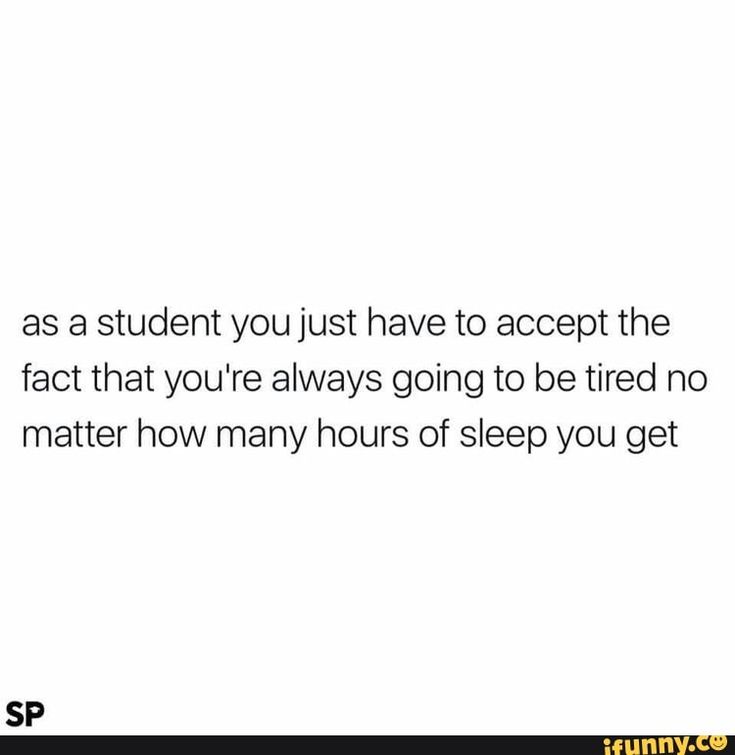 Before you know it, you’re even more stressed because you’re tired and struggling to focus and the cycle of tiredness continues.
Before you know it, you’re even more stressed because you’re tired and struggling to focus and the cycle of tiredness continues.
No one wants to be stressed—it’s normally a by-product of our busy lives and uniquely stressful circumstances. We encourage you to assess what’s happening in your life and how things are affecting your ability to rest. Maybe there’s room in your daily routine for meditation, mindfulness, and prayer to help reduce stress and get good sleep again.
If you lack a continual supply of nutrients and calories, your body can become tired and sluggish.
This can take on different forms: Maybe you eat plenty of fresh fruits and veggies but you exercise a lot and quickly deplete your nutrient and calorie intake. Maybe you eat enough food in general, but not enough of the high vitamin and nutrient-dense foods you need. Maybe you eat very often throughout the day and overwork your digestive system leading to lethargy. Eating a diet high in processed foods and refined sugar can also lead to energy crashes throughout your day.
If you suspect your diet may be making you tired, find foods that are nutrient-rich and eat them in healthy proportions for your age, weight, and height. Choose more fresh fruits and leafy green vegetables for your iron influx, fish such as tuna or salmon contain omega-3 fats for brain-boosting energy, lean meat, nuts, whole grain pasta and rice, and beans also add to a well-balanced diet. These foods effectively fight tiredness if eaten in the right portions throughout your day!
If you eat a healthy, balanced diet, and still experience continuous tiredness, talk to your doctor about your symptoms.
There are also a number of common health conditions that can lead to ongoing tiredness. Just a few include diabetes, anemia, depression, anxiety disorder, food sensitivities, hypothyroidism, hepatitis C, obstructive sleep apnea, heart disease, and nasal congestion.
If you experience any of these issues or if these run in your family, get checked to see if you have an undiagnosed condition causing exhaustion or a current condition that merits medication dosage adjustment. The good news is, most of these conditions are easily manageable so you can return to a more energized life with treatment!
The good news is, most of these conditions are easily manageable so you can return to a more energized life with treatment!
Among common medical conditions that lead to tiredness is sleep apnea—trust us, this one deserves its own paragraph. Sleep apnea is a chronic condition that causes pauses in breathing, or shallow breathing while you sleep. Episodes can last anywhere from a few seconds to a minute and can occur as many as 30 times a minute.
Every time breathing returns to normal, your sleep gets disrupted, leading to daytime sleepiness. Thankfully, you and your doctor can treat your sleep apnea with lifestyle changes such as weight loss and the use of a breathing assistance device like continuous positive airway pressure therapy (CPAP machine) at night.
As you can tell, your tiredness can stem from a range of different issues—some are easy to address and others take significant lifestyle changes. But working to fix those issues is worth it. You know as well as we do how much tiredness is pesky, frustrating, and can make daytime hours unbearable. We hope you figure out the cause of your exhaustion and get back to the energized life you deserve!
We hope you figure out the cause of your exhaustion and get back to the energized life you deserve!
If lifestyle changes don’t help reduce tiredness, see your primary care physician to rule out underlying issues.
Your doctor can perform a range of tests to determine the cause of your exhaustion. Before your appointment, keep a sleep diary to give your doctor a full picture of your nighttime habits. Include the times you fall asleep and wake up, how often you wake at night, and any other symptoms you think are worth noting.
The latest ad for the world's comfiest mattress is at it again. You stare enviously at the screen as the ad model bounds out of bed perkily when the alarm clock goes off. You can't help but wonder, "Why am I always sleepy no matter how much sleep I get?"
Before the guilt train over not being bright-eyed and bushy-tailed goes full steam ahead, we're going to put on the brakes and tell you this: Feeling groggy when you wake up is a completely normal phenomenon called sleep inertia.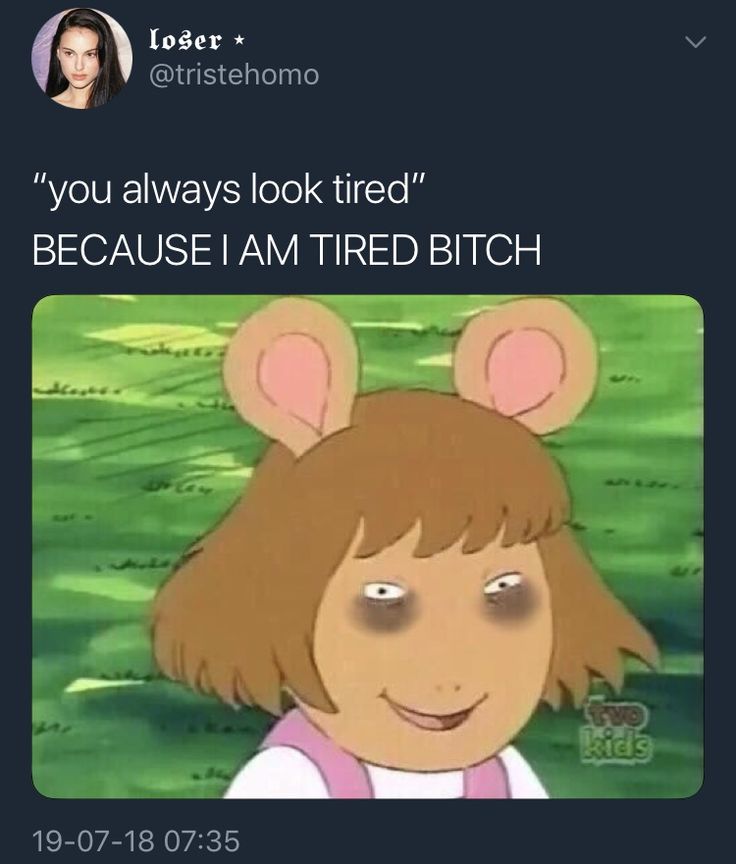 What's not natural is when you constantly feel tired throughout the day.
What's not natural is when you constantly feel tired throughout the day.
Maybe you think you've had enough sleep and the lingering drowsiness is a foreshadowing of a medical condition. But hold up on the health scare. Did you actually have a full night of sleep, or did your mid-afternoon cup of coffee lead to frequent middle-of-the-night awakenings? Perhaps it isn't a lack of sleep behind your low energy levels, but rather an out-of-tune body clock inciting circadian misalignment. Whatever the case may be, your sleep problems are most likely a byproduct of undersleeping rather than oversleeping.
Disclaimer: This post is not intended as medical advice. While the RISE app supports natural sleep patterns and boosts sleep hygiene, it does not treat medical conditions.
So, Why Am I Always Sleepy No Matter How Much Sleep I Get?Anyone struggling with excessive daytime sleepiness knows how much of a drag it can be on their everyday life. Cue the impaired cognitive skills, slower reflexes, weakened immune system, and poorer mood the next day. It's also a recipe for chronic diseases further down the road.
It's also a recipe for chronic diseases further down the road.
You feel like you’re sleeping a lot, so you don’t understand why you’re still tired. The reality is, you’re likely not sleeping as much as you think you are, leading to high sleep debt and/or you’re suffering from circadian misalignment.
In the next few sections, we'll talk about these two factors in detail.
Culprit No. 1: High Sleep DebtThe RISE apps shows how much sleep debt you carry on a daily basis.High sleep debt dampens your energy levels. To understand how that happens, let's clarify a few key terms:
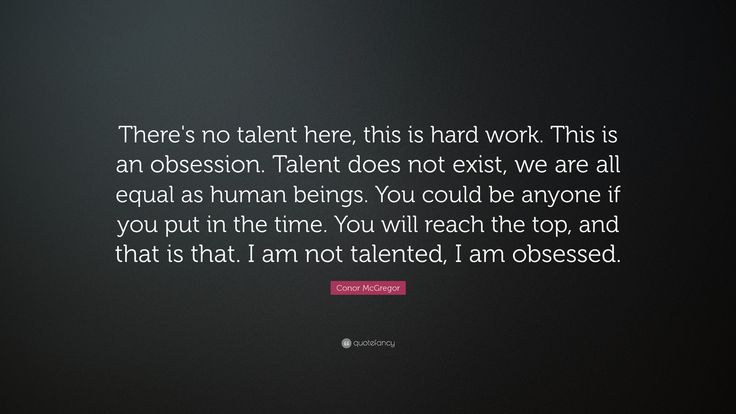 This is a problem confounded by sleep apps that don't peg your sleep score to your individual need. That's why we created RISE to correct this glaring oversight — it calculates your sleep need right down to the exact hour and minute.
This is a problem confounded by sleep apps that don't peg your sleep score to your individual need. That's why we created RISE to correct this glaring oversight — it calculates your sleep need right down to the exact hour and minute. If you don't meet your sleep need, leftover adenosine stays in your system, leaving the seesaw unbalanced and making you feel groggier than usual.
If you don't meet your sleep need, leftover adenosine stays in your system, leaving the seesaw unbalanced and making you feel groggier than usual.The reason you're sleepy all the time boils down to these three things:
It's fine to be sleepy at certain times of the day. As part of your circadian rhythm, you naturally have daily energy peaks and dips. (You can view the timing of yours on the Energy Schedule in the RISE app.)
But when there's sleep debt looming over your head, your energy peaks won't feel as peaky, and your dips will be a real trough. That's because your body is urging you to pay off your sleep debt and reach sleep homeostasis again so that you can feel and function at your best.
Of course, there are solutions to help you get there as quickly as you can: well-timed naps, an earlier bedtime (that's still within your Melatonin Window on the RISE app), and sleeping in up to an hour past your usual wake time.
But ultimately, to keep sleep debt at bay, you need to cultivate bulletproof sleep hygiene through positive lifestyle changes and tweaks to your sleep environment.
Culprit No. 2: Circadian MisalignmentAnother reason you might feel bone-weary tired is circadian misalignment.
Your circadian rhythm is the internal body clock that regulates vital biological processes like your sleep cycle and energy fluctuations. Going against the flow of your circadian rhythm — a later-than-usual bedtime, working the graveyard shift, etc. — incites circadian misalignment.
Daylight savings time (DST) perfectly exemplifies how a mere one-hour fast-forward/fall-back of your sleep schedule has massive repercussions on your sleep and health. Below, we share three other scenarios that regularly trigger circadian misalignment to a much greater degree in most people.
Below, we share three other scenarios that regularly trigger circadian misalignment to a much greater degree in most people.
The timing of your circadian rhythm is, in part, dictated by your chronotype. From sleeping to waking, eating to exercising, there’s a right time to carry out your daily activities if you want to be in top form. Your chronotype is why you might identify as a “night owl” or an “early bird” — with a good number of us somewhere in between these two extremes.
For many night owls, it’s likely your current lifestyle is at odds with your chronotype because we live in an early-bird world. When you’re biologically inclined to a later sleep-wake schedule, it feels excruciatingly impossible to drag yourself out of bed at the crack of dawn and fulfill work or school duties. No wonder you constantly think to yourself, "I'm always sleepy no matter how much sleep I get!"
The SolutionYour best bet is to align your lifestyle with your chronotype. If that isn't possible, say, you're an evening chronotype with a 9-5 job, try actively shifting your circadian rhythm to match your life demands. While it's doable, take note that it requires time, effort, and consistency.
If that isn't possible, say, you're an evening chronotype with a 9-5 job, try actively shifting your circadian rhythm to match your life demands. While it's doable, take note that it requires time, effort, and consistency.
You’ve heard of (and probably have experienced) travel jet lag. But there’s another form of jetlag you may not know: social jetlag, when your social and biological clocks are out of sync.
In the past, the epitome of social jetlag was a late-to-bed, late-to-rise timetable on the weekends (or days off), only to strong-arm your internal clock into an early sleep-wake schedule during the workweek. Nowadays, with a work-from-home schedule that doesn't necessitate a consistently timed morning commute, social jetlag is a much more frequent occurrence.
Unfortunately, this form of jetlag doesn't just take a toll on your body the next day. Its backlash extends far into the future — animal models confirmed the close relationship between circadian disruption and metabolic diseases like diabetes and obesity.
Consistency is the antidote to social jetlag. If some deviation from your sleep-wake times is non-negotiable, maintain a semblance of regularity in other aspects of your daily routine.
For example, regular meal times are a solid tactic to steady your circadian rhythm. In a 2020 systematic review and meta-analysis, scientists recommended time-restricted eating (TRE), which "emphasizes the timing of eating within a limited duration" to minimize and prevent the ill effects of circadian misalignment. The paper concluded that TRE improved several metabolic metrics — such as weight gain, blood pressure, glucose levels, and cholesterol levels — for better overall health.
Scenario 3: Shift WorkShift work is one of the most prevalent triggers of circadian misalignment in modern society. Research explains the side effects that a shift worker can experience from circadian misalignment alone as well as circadian misalignment coupled with sleep debt:
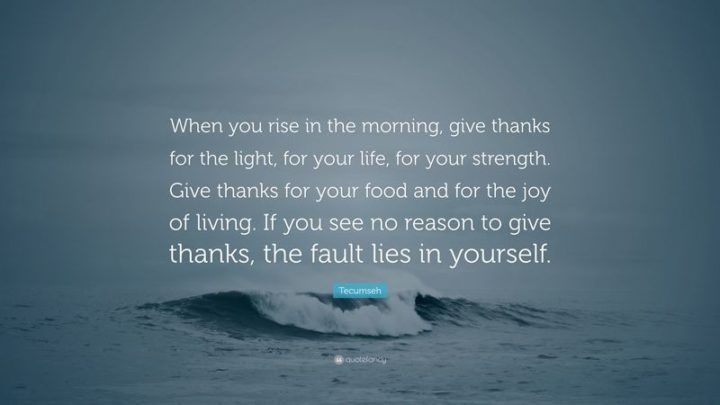 Another 2019 study highlighted that circadian disruption is linked to a greater risk of sarcopenia (progressive muscle loss).
Another 2019 study highlighted that circadian disruption is linked to a greater risk of sarcopenia (progressive muscle loss).Healthy sleep hygiene tamps down the worst of SWSD. You can also leverage certain circadian cues to bring forward or delay your sleep schedule for better circadian alignment.
For instance, light is the most potent circadian cue to start, stop, and reset your internal clock. Expose yourself to bright light (preferably sunlight) when you wake up and avoid artificial light (especially blue light) in the few hours before bed.
If possible, request rotating shifts that move forward in time. Forward shifts push your bedtime backward so you experience less circadian disruption and need less adjustment to your sleep schedule.
If high sleep debt and circadian misalignment aren't to blame for your persistent tiredness, there may be a chance a health condition is at work.
The tendency to sleep longer than the average person is medically known as hypersomnia or oversleeping. It's a common symptom in various medical conditions and sleep disorders such as:
Take note that symptoms, like joint pain or backaches, can also affect the amount and quality of your sleep, so you end up perpetually sleepy. The same goes for certain medications and stimulants, like antihistamines and alcohol.
Stop Feeling Sleepy All the Time With RISEFor the most part, the answer to "Why am I always sleepy no matter how much sleep I get?" is most likely hefty sleep debt and/or circadian misalignment. Very rarely would it be a chronic illness triggering hypersomnia.
Very rarely would it be a chronic illness triggering hypersomnia.
But you can stop feeling sleepy all the time with RISE, which will help you get the sleep you need and stay aligned with your body clock. Download the RISE app today so you can feel and function at your best.
It happens to each of us: you sleep well, but in the morning you feel overwhelmed. The reasons can be very different - from sleep inertia, which we have already talked about, to iron deficiency and much more serious problems. We will tell you why we sometimes experience fatigue, even if we have had enough sleep.
If you feel more tired in the morning than last night, you may have disrupted your circadian rhythms. By waking up at the same time every day, we train our body to wake up immediately after waking up, explains American neuroscientist and sleep expert Christopher Winter. If we sleep longer than usual, then we break this habit.
“The body sleeps in cycles,” says Winter. - In a normal rhythm, you get up, do exercises, come to work by eight and go to bed after the evening show. But during the weekend, when you hang out with friends on a Friday and then sleep until noon, your brain suddenly doesn't understand what's going on. The brain sees the light for the first time at noon and thinks that the sun has just risen, and your dinner is breakfast...”
- In a normal rhythm, you get up, do exercises, come to work by eight and go to bed after the evening show. But during the weekend, when you hang out with friends on a Friday and then sleep until noon, your brain suddenly doesn't understand what's going on. The brain sees the light for the first time at noon and thinks that the sun has just risen, and your dinner is breakfast...”
Another cause of drowsiness is the inertia of sleep. You can end up in this state if you wake up in the wrong phase. Clinical psychologist Sarah Nowakowski says that we usually go through five sleep cycles of 9 per night.0 minutes, each with four phases. If we disrupt our circadian rhythms, we may wake up not at the end of one of the cycles, but in the middle of one of them. Because of this, you can feel not fully awake and disoriented.
However, there are other reasons why you may be overwhelmed after sleeping all night. Some of them are harmless, while others can be a signal that it is time for you to see a doctor.
Many people associate physical activity with exhaustion, but this is not always true. Working out in the gym won't necessarily drain all of your energy, but on the contrary, it can improve the quality of your sleep. If you do light exercises at least several times a week, you will have more strength. Regular exercise helps our body and brain work better and reduces sleepiness.
Lack of water can lead to dizziness and extreme fatigue. Due to dehydration, the volume of blood in the body decreases, the heart works less efficiently, and we feel exhausted.
One of the main signs of depression is fatigue. Due to this mental disorder, fatigue may not leave you, no matter how well you sleep. Often people do not even notice that they are depressed until they realize how sleepy they are constantly experiencing. Pay attention to your feelings and if you think that depression can be the cause of fatigue, contact a psychotherapist.
A glass of wine before bed can help you relax and fall asleep. However, as Allen Toufay, M.D., points out, “Ultimately, this is how you sabotage the maintenance of [healthy] sleep.” First, alcohol depresses the central nervous system, creating a sedative effect, and then, when the body absorbs alcohol, there is a sharp release of adrenaline. Therefore, after drinking, we can wake up in the middle of the night. Toufai recommends drinking alcohol no later than three to four hours before bedtime.
The last cup of coffee is best drunk six hours before bedtime. Coffee blocks adenosine, the substance responsible for fatigue, so we have a harder time falling asleep. In addition, some studies show that caffeine disrupts circadian rhythms.
You've probably heard this advice before, but it won't hurt to repeat it. Don't take your phone to bed! The blue light of gadget screens interferes with the production of melatonin, the “sleep hormone”. You may not notice this effect, but your sleep will be less deep as a result.
You may not notice this effect, but your sleep will be less deep as a result.
When we fall asleep, the body continues to use the nutrients from dinner to maintain blood circulation and the movement of oxygen in the blood. After waking up, the body needs new fuel to continue its work.
Maybe you lack iron - its lack leads to fatigue. Or perhaps you need more vitamin B, which is involved in converting food into energy. You may also be deficient in magnesium, which maintains normal glucose levels.
Stress and anxiety also lead to drowsiness. They can make it harder for you to fall asleep and wake up more often, depriving yourself of deep sleep.
Sometimes fatigue can be a sign of a serious illness, such as diabetes, thyroid disease, or anemia. Anemia can be caused by iron deficiency, blood loss, or something more dangerous like kidney failure or even cancer. If you feel exhausted for more than a week, see your doctor.
If you feel exhausted for more than a week, see your doctor.
We collect all the most important and interesting things on our VKontakte page
Spleen, apathy, depression - that's what many people call it.
Asthenic syndrome - doctors call it.
What is it? There is such a simple life hack: if symptoms of weakness and lethargy appear right in the morning, then you need to ask yourself when do you feel better in the morning or in the evening? If in the morning everything is ok. If in the evening? For example, you went to bed on time, and it’s very difficult to get up in the morning, you have to persuade yourself for a long, long time, while there may be sleep disturbances, you get up as if you didn’t rest, you feel overwhelmed in the morning and this lasts for a long time, then, of course, you need to suspect depression . The second option is If an asthenic condition has already arisen, then, of course, we will not achieve the desired effect by changing the diet alone. You definitely need vitamin supplements. Consultation with specialist is required for selection. 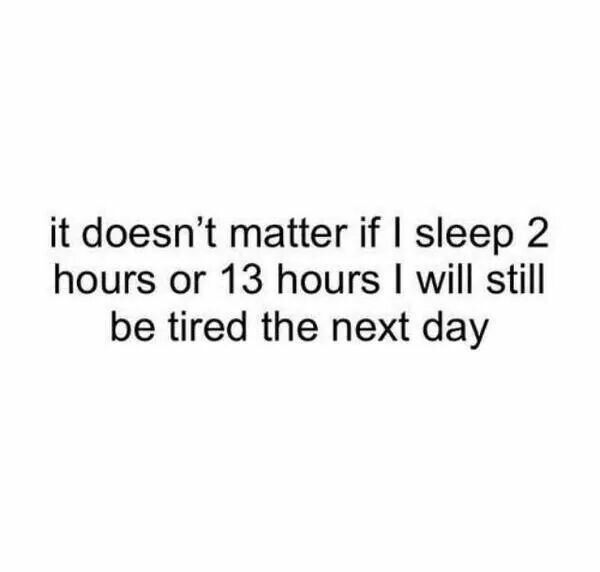 And here the help of a specialist may be required, very often this condition is a mask of some kind of chronic disease. Here should work not just a psychologist, but a good practitioner who can see the condition that is masked by depression.
And here the help of a specialist may be required, very often this condition is a mask of some kind of chronic disease. Here should work not just a psychologist, but a good practitioner who can see the condition that is masked by depression. 
Vitamins themselves are not a source of energy, but they activate numerous metabolic processes. Thanks to vitamins, food is properly digested and gives us strength. The metabolism works exactly the way it is supposed to work. The activity of hormonal glands, the cardiovascular, nervous system is regulated, they are involved in hematopoiesis. Vitamins are involved in all body processes, so the deficiency of each affects the deterioration of well-being.
So, vitamins and microelements - activators of energy processes: C, B1, H (biotin), folic acid, vitamin D, Copper, Chromium, Potassium, Magnesium, Iron, Iodine.
Let's see why and what vitamins we need.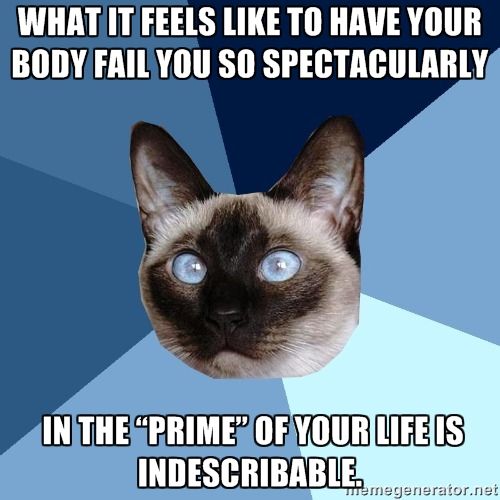 Why is it necessary in the spring, even if we eat right and include a lot of green and fresh foods in the diet. First of all, of course, vitamin C . He is responsible for immunity, for vitality, for a good mood. Increases the body's resistance to disease. Participates in the exchange of norepinephrine - this is the hormone of courage, thanks to which we kind of internally gather, mobilize, begin to think more clearly, make decisions faster and be effective. Effectively deal with stress.
Why is it necessary in the spring, even if we eat right and include a lot of green and fresh foods in the diet. First of all, of course, vitamin C . He is responsible for immunity, for vitality, for a good mood. Increases the body's resistance to disease. Participates in the exchange of norepinephrine - this is the hormone of courage, thanks to which we kind of internally gather, mobilize, begin to think more clearly, make decisions faster and be effective. Effectively deal with stress.
The second most important vitamin in this respect is vitamin B1 . It helps the regeneration of the nervous system, which affects the emotional state. Participates in the Kreps cycle, this is the main energy station in the body, so it is essential.
Vitamin B7 (Biotin, Vitamin H, Coenzyme R) controls the absorption of nutrients and their conversion into energy. Eliminates the feeling of eternal fatigue even with prolonged exertion, relieves sleep problems and, along with thiamine, determines the human ability to concentrate and mental work.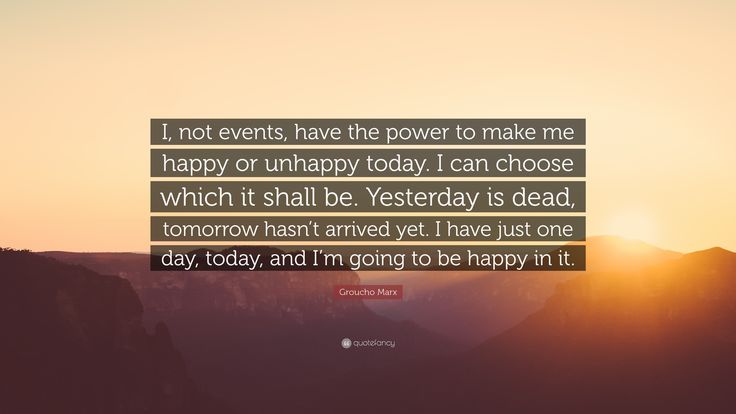
B9 (folic acid), like vitamin C, promotes the production of norepinephrine, protects against stress, awakens optimism and gives us energy. Including sexy!
Vitamin D orchestrates blood flow. How well he copes with his task depends on whether the cells are fully supplied with oxygen and cleared of decay products in a timely manner, as well as how quickly we can restore our strength after rest.
No less than vitamins, we need minerals:
Copper , the presence of which in the body directly affects metabolism, is involved in the formation of norepinephrine and serotonin.
Iron together with vitamin D is responsible for delivering oxygen to cells.
Selenium strengthens the nervous system and performs many other functions.
Potassium , the lack of which results in muscle weakness and heart rhythm disturbances. In order to avoid potassium deficiency, first of all, it is worth giving up fast food, which contains monosodium glutamate and salts, which are potassium antagonists.
In order to avoid potassium deficiency, first of all, it is worth giving up fast food, which contains monosodium glutamate and salts, which are potassium antagonists.
Iodine saves us from chronic fatigue, weakened immunity and mental decline.
Chromium affects the functioning of the brain and the activity of the nervous system.
Magnesium is the “main power engineer” of cells, participates in more than 300 biochemical reactions and metabolic processes, and at the same time provides us with healthy sleep. Its deficiency is expressed in a feeling of permanent fatigue, lethargy and dizziness.
In addition, we want to say that iron and iodine deficiency also causes a state of apathy and lethargy. Their prescription is recommended by doctors because there are certain restrictions.
If you take vitamins, you eat well and properly, but nevertheless you are still covered in spring.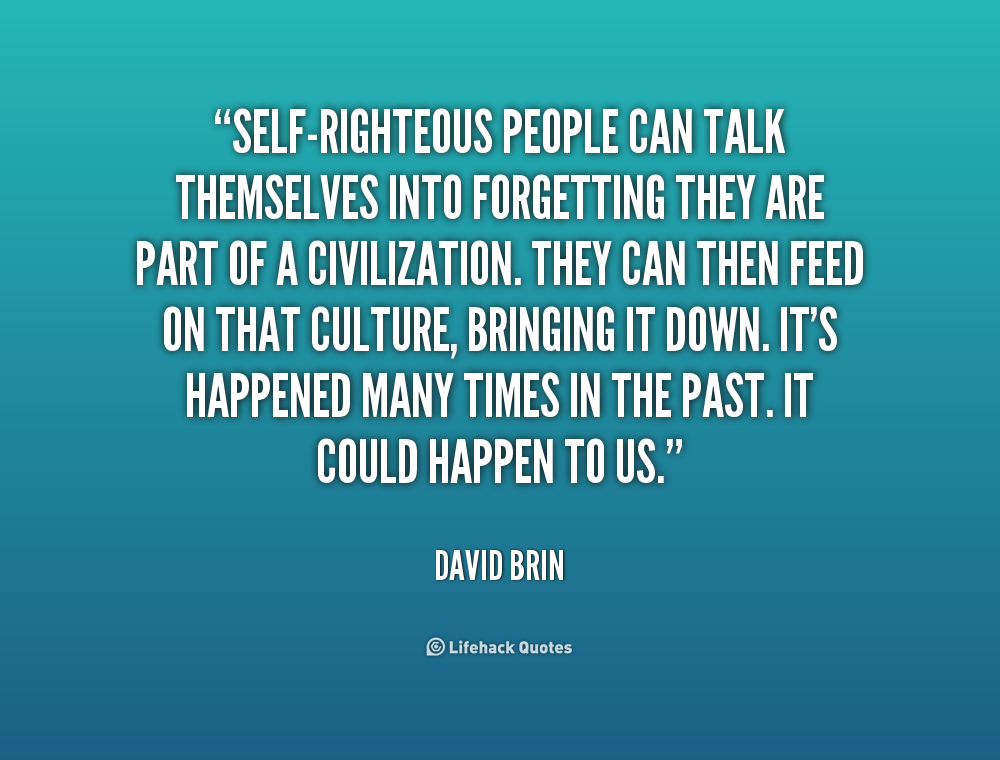 There is an even more advanced level, we can test the genetics of vitamin metabolism . This is a simple and quick test, it is cheaper than constantly testing vitamin levels. In genetics and metabolism of vitamins, there can be persistent vitamin-deficiency states, even despite taking medications. There may be features associated with the exchange of vitamins, genetic features in which a person needs higher adjustments than others. Vitamins are coenzymes of many metabolic processes. They are involved in the synthesis of substances-accelerators of metabolic processes. Without them, they are not produced; without them, genomic material cannot be read. We have certain genes that encode all metabolic processes, the synthesis of regulatory proteins, enzymes that ensure the regulation of all metabolic processes. Information from genes may or may not be read due to the fact that there is a deficiency of certain vitamins in the body at the moment. Activation and synthesis of hormones may not occur due to the lack of certain vitamins, there is no reading of genomic material that encode information about the activity of hormones, for example.
There is an even more advanced level, we can test the genetics of vitamin metabolism . This is a simple and quick test, it is cheaper than constantly testing vitamin levels. In genetics and metabolism of vitamins, there can be persistent vitamin-deficiency states, even despite taking medications. There may be features associated with the exchange of vitamins, genetic features in which a person needs higher adjustments than others. Vitamins are coenzymes of many metabolic processes. They are involved in the synthesis of substances-accelerators of metabolic processes. Without them, they are not produced; without them, genomic material cannot be read. We have certain genes that encode all metabolic processes, the synthesis of regulatory proteins, enzymes that ensure the regulation of all metabolic processes. Information from genes may or may not be read due to the fact that there is a deficiency of certain vitamins in the body at the moment. Activation and synthesis of hormones may not occur due to the lack of certain vitamins, there is no reading of genomic material that encode information about the activity of hormones, for example.